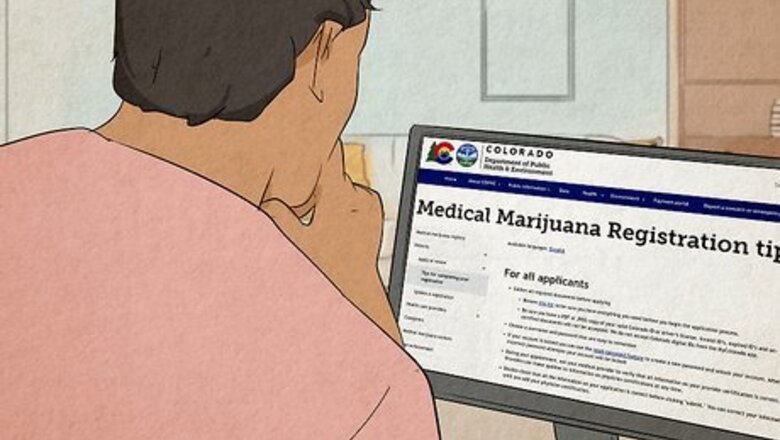
views
X
Trustworthy Source
Mayo Clinic
Educational website from one of the world's leading hospitals
Go to source
Ready to try it? As of 2022, medical marijuana is allowed in 37 states, 3 territories, and the District of Columbia. Read on to find out everything you need to do to apply for a medical marijuana license so you can get some from a licensed dispensary near you.
Check your state's website for basic requirements.
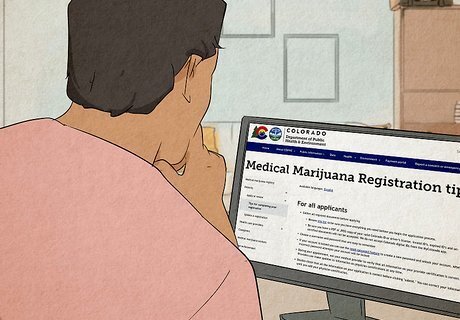
The eligibility requirements are different in every state. The Network for Public Health Law created a table of medical marijuana laws in each state that also includes links and contact information for each state's program. Click through the website link for your state to go to your state's website. Take note of the following information: Approved medical conditions that are approved (and if you need to have specific symptoms or a certain level of severity to qualify) Which doctors can certify your diagnosis Residency requirements and how to prove residency in your state
Get medical certification from a registered doctor.

A doctor must certify that you've been diagnosed with an eligible condition. Some states, such as New York, require doctors to register with the medical marijuana program and take a course on medical marijuana before they can provide this certification. In other states, you can simply use your PCP or a specialist who treats the specific condition. Check your state's marijuana program website for a specific form your doctor can fill out. In some states, you can try a medical cannabis specialist. Expect to spend at least $100 for the appointment and take copies of your medical records with you. Keep in mind that there's no guarantee the specialist will write you a recommendation. Some states, such as New Jersey, require you to have a regular relationship with the doctor who submits your certification. That means you can't use a medical cannabis specialist—you need a doctor who has actually treated you for the specified condition for at least 4 visits, if not longer. Your healthcare provider will take a look at your past medical history, along with your current medical complaint. Treat this appointment like you'd treat any other visit to a healthcare provider.
Enroll in your state's patient registry.
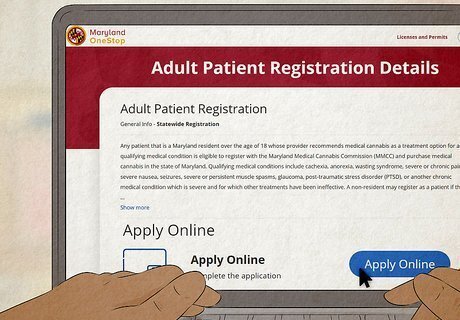
Apply for a license with your state's medical marijuana program. Most programs have an online application you can use to get started. This application asks for basic information about you, including your legal name, current address, and contact information. Your state may require that you have a state-issued photo ID or driver's license. If you don't have one, get one before you register—the information on the registry needs to match the information on your ID.
Designate caregivers on your registry profile.
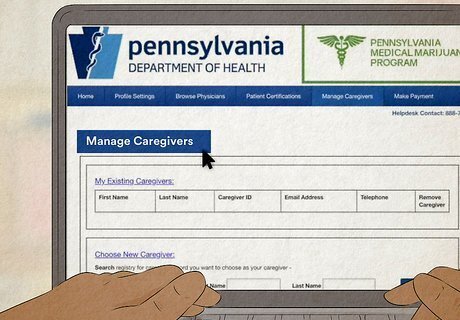
List anyone who cares for you so they can get marijuana on your behalf. The people you name will have to create their own registration profile and may be subject to a background check. Most states let you designate at least 2 caregivers, while some, such as New York, will let you name up to 5. Caregivers are typically your partner or a parent, but they could also be a friend, neighbor, or anyone else who routinely helps you out. Even if you don't have someone who looks after your health concerns, it's still a good idea to name at least one caregiver. For example, you might want your spouse to pick up your weed for you while they're already out running errands.
Submit your medical certification.
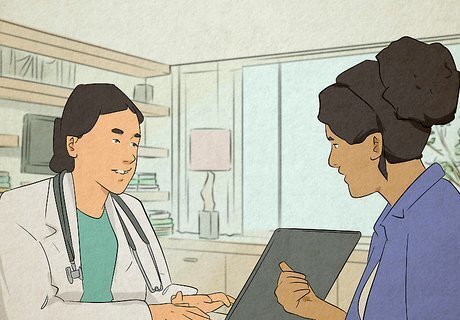
Find out what your state's process is for medical certification. Some states prefer to receive the certification directly from the doctor. In others, you're responsible for submitting the document to the program. The website for your state's medical marijuana program will tell you specifically what you need to do where you live.
Pay for your license.
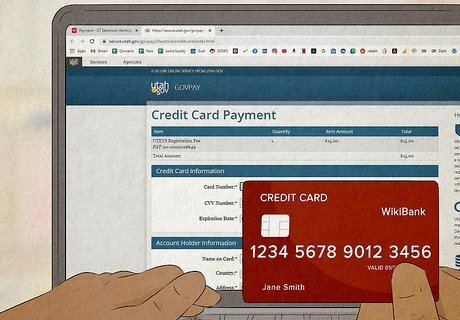
Go online to pay the fee for the state to issue your license. All states charge a fee for a medical marijuana license, typically around $50. If you get federal assistance, such as Medicaid or SNAP, you might be eligible for a reduced fee. Some states, such as New Jersey, also offer reduced fees for senior citizens and military veterans. The specific process varies, but typically you'll get an email or letter from the medical marijuana program letting you know your doctor's certification has been received. That letter will include instructions on how to pay for your license.
Visit a licensed dispensary.
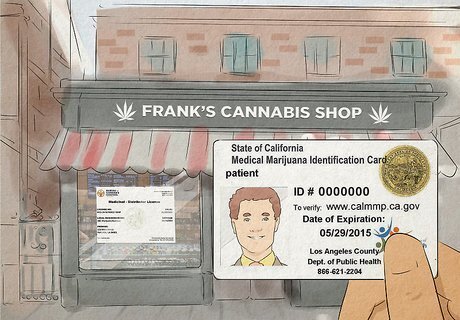
Take your license and ID to a licensed dispensary to purchase weed. Typically, you can purchase weed from any dispensary in the state—but check with your state's program to be sure. Some states might require you to sign up as a patient at a specific dispensary. In some states, such as New Jersey, you can only get medical marijuana from specific treatment facilities—not just any dispensary. This is more likely in states where recreational weed is also legal.
Keep your medical marijuana secure.
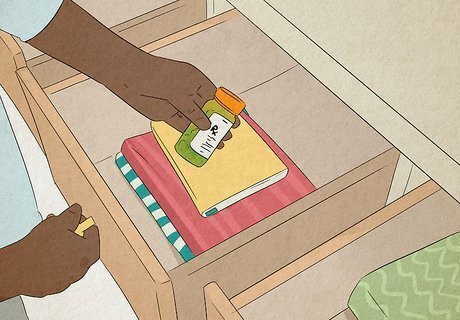
Treat medical marijuana the same as any prescription drug. Always leave it in the same packaging, with all the labels intact. Don't share it with others or leave it lying around where others might have access to it. It's usually best to only use your medical marijuana in the privacy of your own home. Many states have rules against smoking in public, but even if you have edibles, it's better to consume them at home than out in public. Don't drive or operate heavy machinery while you're under the influence of medical marijuana. If you travel out of state, don't take your medical marijuana with you.
Renew your license every year.
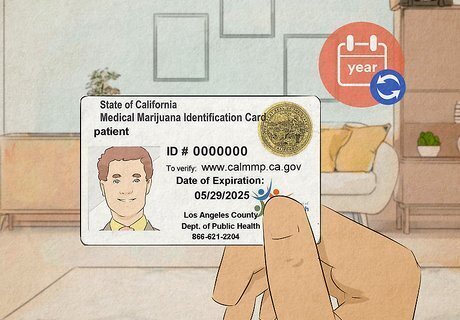
Submit a new medical certification with your renewal application. In most states, medical marijuana licenses are only valid for a year at a time. A couple of months before your license expires, you'll get a letter or email from the state reminding you that it's time to renew. The renewal process is typically exactly the same as the application process. In some states, such as Illinois, you can pay an additional fee for a longer term, up to 3 years.




















Comments
0 comment